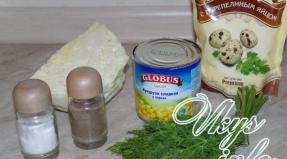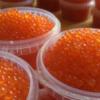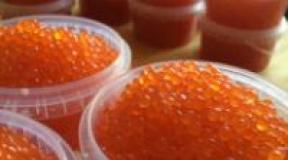Is there any benefit to the body from vodka? The benefits and harms of vodka for health
Vodka is the most popular alcoholic drink in our country, but also the most controversial. There are residents of Russia who will never believe that it benefits the body, but there are also those who have no idea how they will live if it is gone.
It can be purchased in almost every grocery store any Russian settlement, but many people who use it often end up in a hospital bed and even die. Vodka is perceived as a drink for men. It is very often drunk during a feast (for both joyful and sad occasions), using fresh or salted / pickled vegetables, bacon, meat as a snack. However, there are also individuals who drink it for no reason at all. And everyone knows the consequences of not being useful for this alcohol-containing liquid.
As it was sung in one famous song: "Russian vodka, what have you done? ... You ruined me." This humorous piece of music has a grain of truth. Every Russian knows what vodka is. But today people often wonder if there is any benefit from using it or is it only harmful?
This article will describe in detail useful and harmful properties given strong drink... Therefore, any person can make a conclusion for himself whether to drink vodka without knowing the measure, or use it in medicinal purposes.
A liquid called "vodka" is a colorless water-alcohol solution with a well-recognized taste and "aroma" of alcohol. This hot drink is popular in all countries of the world, but it is made from various raw materials (it depends on the climate, traditional preferences of the people).
Vodka was first mentioned in the 10th century. Then the Persian doctor Ar-Razi by distillation created a prototype of vodka, which was used exclusively in medicine. In European countries, this drink originated in the 13th century, but it could only be bought at a pharmacy (it looked like essences and tinctures).
On the territory of Russia, infusions of herbs (roots, berries) and alcohol began to be used only in the 14-15 centuries. And starting from the 16th century, they began to use it as an alcoholic beverage. The clergy realized that this potion had a detrimental effect on a person and for a long time condemned its sale. But it has always been of great importance for people, therefore, until traditions are eliminated and it disappears from store shelves, a person is unlikely to stop drinking it.
Vodka acquired its own name as a type of alcoholic beverage in the Soviet Union only in 1936, when GOST appeared (but this alcohol was named "vodka" because of the Slavic word that was used in Russia and Poland, which means "water", "water" ).

Now vodka is made by mixing water and ethyl alcohol(C2H5OH). And the strength of this liquid (40%) was fixed in the "Charter on Drinking Fees" and was approved on December 6, 1886. But there are separate varieties of this drink, the strength of which is 32-36 degrees, and there are those whose strength exceeds the norm (45 and 50 degrees).
There is no exact answer to the question of how many varieties of vodka exist in the world. Many states have own species this alcoholic drink, which have become a kind of " business card»Nationality or state. Each person has the opportunity to choose a variant of this drink according to his taste.
An important component of the production of vodka is its filtration, carried out using activated carbon and special filters. Various components (aromatic alcohol, glycerin, essential oil) go to the finished drink as an additive. They provide vodka with additional taste and smell, but do not affect its color and transparency.
They drink this liquid in pure form, or use it as a component in cocktails. It contains no fat or proteins, but only carbohydrates. There are approximately 230 calories in 100 milliliters of alcoholic beverage.

The effect on the human body of an alcohol-surrogate, which in the common people is called moonshine, is difficult to predict and describe, because it is often made on devices that are literally “at hand” and from components that have a very distant relationship to vodka.
When the main ingredient of vodka (ethanol) enters the human body, it is absorbed into the bloodstream while in the stomach, but its main part ends up in the bloodstream, coming from the intestines. Ethyl alcohol makes an individual drunk.
The blood, which has received alcohol saturation, begins to pass through the liver (the I-th barrier of the body's defense). Here, the ethyl alcohol partially decomposes and becomes acetaldehyde, which is considered a very poisonous substance. Because of this, alcohol first strikes a blow on the liver, and then on the vessels, kidneys and other organs. But the liver is unable to handle all the alcohol that has entered the bloodstream. She manages to make only 20% of the first dose harmless, which is why the remaining ethanol is absorbed into the blood almost unchanged.
Alcohol that has entered the bloodstream functions as a good fat solvent, it destroys plaques and blood clots that have formed on the walls of blood vessels. But in tandem with acetaldehyde, ethanol has a very aggressive effect on metabolism, disrupting the activity of cells and breaking down hemoglobin.
A minute later, this explosive mixture is near the brain. And it is very good that the human brain is equipped with additional cell protection - the blood-brain barrier, which allows substances that are beneficial (oxygen, glucose) to pass through and traps toxic substances. But the body does not have the ability to detect ethanol as a poison, which is why it easily goes to the brain nerve cells. There, under the influence of a biochemical process, some of the alcohol is converted into acetaldehyde. It liquefies the membranes of neuronal cells, this tandem releases neurotransmitters.

Substances called neurotransmitters that enter the bloodstream give rise to uncontrollable reactions:
First, beta-endorphins are released from the hypothalamus, stimulating the pleasure center and causing a feeling of euphoria.
Then neurotransmitters work, which are responsible for coordinating movements, memory, vision. Excitement appears (violence and aggression may also appear).
Then lethargy occurs. If a person is drunk, then he feels sleepy and apathy. Which often leads to his falling asleep (turning off) in a place that is completely not intended for sleeping (with his head in a plate of food, on the floor under the table).
However, other very unpleasant things happen to the human body, which is affected by alcohol.
When a feast is accompanied by vodka (which is quite common in our country), then at the onset of the morning a person who has drunk too much strong drink, experiencing a hangover: due to alcohol poisoning after waking up, the head hurts, the mouth feels dry, nausea comes. When a person is healthy, then in such a situation he is helped: mineral water, juice, brine and other liquids, which are popularly called "ambulance", as well as medicines. And a person who will be "treated" with beer or vodka slowly but surely turns into an alcoholic.

Vodka is a very strong drink. It causes great harm to human health, namely:
Ethanol inhibits all reflexes of the body, slows down the speed of mental activity and reduces memory, has a detrimental effect on the activity of the brain. Even in small doses, alcohol, if consumed systematically, negatively affects the central nervous system person.
When alcoholic beverages are drunk often and excessively, the liver suffers, there is a high probability of cirrhosis, alcoholic hepatitis, ascites (water accumulates in the abdomen), and other ailments.
Alcohol in significant doses affects the activity of the pancreas (insulin is produced more slowly).
Ethyl alcohol activates urine production, which can cause dehydration and impair function different systems organism.
Alcohol in large quantities leads to gastritis, ulcers, stomach and duodenal cancer.
Drunkards are often infertile, and men experience impotence.
If you drink alcohol regularly, then a disease such as alcoholism develops. It is impossible to recover from it forever.
When a person uses alcohol (including vodka) uncontrollably, he loses his professional suitability, his personality degrades, and the family is destroyed.
Alcohol consumed in low doses still increases the likelihood of injury and death. Being in alcoholic intoxication, people increase the number of suicide attempts and probable accidents, as a result of these situations a person becomes disabled, and he can also die. This happens due to slow nerve impulses (fear, anxiety, excitement disappear, inhibitions are erased and euphoria appears).
If a person is not trained and belongs to the average person, then when he drinks 400 grams of ethanol, he can die. The same dose can provide him with a stroke or cardiac arrest.
Additional problems in the body of a person who abuse alcohol
If a person has already become an alcoholic, that is, drinks alcohol regularly, then the processes described above will occur even more quickly, and a number of new problems will also appear:
He can die of a simple heart attack (heart failure) because the body stops producing enzymes that break down glucose. And ethyl alcohol, which is contained in vodka or other intoxicating drink, releases more energy, and the body breaks it down quite simply.
When ethyl alcohol enters human body, then neurotransmitters are produced in a volume that is much higher than the norm. The body tries to normalize the production of this substance, therefore it blocks the "excess" of the channels. However, in the event that ethyl alcohol stops entering the body, a person begins to be angry, nervous, capable of performing various stupid or even illegal actions. The individual loses the ability to think about anything other than alcohol. He is no longer able to slow down his craving for alcohol.
This dependence enters the human genome, so alcoholics pass on their pathological enthusiasm for intoxicating drinks to their own descendants.
There are methods that can eliminate the addiction to alcohol, but they are effective only when the addiction process has not yet passed into an advanced stage. If a drunkard gets drunk from time to time, that is, on holidays, then he can be cured. And the alcoholic who gets drunk every morning will no longer be able to live a normal life. Because of this, when using the next dose of alcohol, it must be borne in mind that the transformation into a real alcoholic occurs, although not very noticeably, but at a high speed.
As can be seen from the above, vodka causes great damage to human health and life, therefore, when using it, a measure is important.
How is alcohol, including vodka, good for the body?
Alcohol abuse will not lead anyone to good. However, vodka can be good for humans:
It can be used as an excellent disinfectant, which is why it was first available to customers in pharmacies. It was used to treat wounds, cuts, abrasions, and disinfect the skin (on the hands and various parts of the body).
The disinfecting property of vodka is beneficial and has found its place in preparations related to folk medicine, for example, if you want to get rid of toxic substances and pathogenic microorganisms with diarrhea (vodka and salt). It is used as a preventive measure for hypothermia or for the onset of a cold (vodka and pepper / honey), however, the dosage for treatment should not be more than 50 grams.
It can "warm", which is beneficial as a means that disperses blood throughout the body, in a situation where it is necessary to work for a long time in cold or damp weather. Vodka is used in the form of a compress and rubbing when a person has a sore throat or a cold, his back or joints hurt.
This strong drink can bring down high temperature body in a few minutes (including a child), as it is a good antipyretic agent. In this case, it is used as a wrap.
It is widely used to make various healing tinctures, warming up rubbing and other drugs, allowing you to get rid of various ailments. Here vodka acts as a preservative and does not allow this medicinal product to deteriorate too quickly.
If you take vodka as a component for compress, lotions, rinsing, baths and rubbing, then it will eliminate inflammation, itching, nail fungus, bad odor from the mouth, pain in the head and teeth.
Vodka has a diuretic property, so it can be used for edema, it will remove from the body excess water and toxic substances.

As paradoxical as it may sound, vodka is of great benefit to the body. However, it must be borne in mind that those drugs that are prepared on the basis of this drink, in order to take them internally, tend to heal if they are used in small doses, that is, 30-50 milliliters per day during illness, or by a course intake. Otherwise, a large dose or long-term use will lead to the fact that the person simply gets drunk.
If you take vodka in moderation, then:
It will turn out to prevent heart disease, make the walls of the vessels stronger, make the vessels wider and bring them back to normal blood pressure, making the blood flow free.
Diabetes and gallstones can be prevented.
Make your appetite and sex drive stronger.
In some situations, it will be possible to regulate the psychological and emotional state, that is, relieve stress and tension, which was often practiced in the ranks of the Red Army during battles, making military everyday life easier. The sedative effect of this intoxicating drink can help relieve depression and shock.
This strong alcohol was learned to use in cleaning and disinfecting agents that can be used to wash various surfaces in the house.
It is used to cook different marinades, sauces, desserts, cocktails, make preparations for the winter (is a preservative).
How long does it take for alcohol to leave the human body and how much can you drink without negative health effects?

People quite often ask: "How long will it take for alcohol to be removed from the body?" That is, how much you can drink before a trip or the start of a working day, so that you can then calmly drive and correctly assess everything that is happening around.
It is difficult to answer this question, since the age and health of a person affects the elimination of vodka from the body. But there are averages (calculated for 100 milliliters of alcohol) with a weight of up to:
60 kilograms - 5 hours 48 minutes;
70 kilograms - almost 5 hours;
80 kilograms - 4 hours 21 minutes;
90 kilograms - 3 hours 52 minutes;
100 kilograms - 3.5 hours.
If the doses are even greater, then they are removed longer (can be calculated by proportion).
Many are interested in: - "What dose of alcohol will not harm your health?" Experts have found an answer to this question. If a person is healthy and his weight does not exceed 70 kilograms, then his body can process up to 170 milliliters of vodka per day.
Once an aristocrat from England defined the measure of alcohol as follows: he made 3 marks on the glass from bottom to top: "Woman", "Man", "Animal".
Each person can determine for himself how much to drink, but doctors say that a healthy male person can consume 80 milliliters of alcohol per day without consequences. Ladies do not have good resistance to the effects of vodka on their bodies. The dose for them is 40 milliliters. And we must remember that the elderly and children in no case should be consumers of alcoholic beverages.
Through research, scientists have found out which of the spirits is the safest:
Dry grape wine contains antioxidants, so it can somewhat compensate for the harm that alcohol does, and can also prevent some diseases of the heart and blood vessels;
The liqueur and tincture contain fruit and berry juices, roots, so they can be used to treat ailments if consumed in limited quantities;
Hot drinks homemade(for example, chacha, moonshine), in addition to ethyl alcohol, they contain other types of alcohol and fusel oils, therefore, need additional purification (rectification);
The most dangerous product vodka is considered if it is produced using a chemical reaction;
Ethanol completes the list of intoxicating drinks that are harmful to people.

Today there is a large number of recipes for the preparation of all kinds of drugs, the basis of which is vodka. They benefit human health due to the use of herbs, berries, roots infused with vodka (a preservative for useful components).
You can, for example, make vodka in a bee pomor (dead bees). This unusual ingredient has: aminopolysaccharides, chitosan, peptides, heparoids and bee venom. They are useful for the body, as they can restore the functioning of organ systems, normalize metabolism, improve work immune system, make the pressure in the arteries normal, remove inflammation, thrombophlebitis, atherosclerosis, liver disease, endocrine system, to overcome oncology, as well as ailments of viral and bacterial origin.
To prepare the potion, you should use the pomor obtained in the fall, as it contains more useful components. Pomor needs to be dried, turned into powder and filled with vodka in a ratio of 1: 3. Then the container with the drug must be corked and left in a place where it is dark and cool so that it is infused there for three weeks (the first 7 days the container will have to be shaken every day, then every few days). The infusion period will pass, and you will have to filter the resulting infusion, and then pour it into another clean container.
For what purpose is this remedy used:
To cleanse the liver from lamblia (maximum 30 drops three times a day after meals);
For either frigidity in women (maximum 20 drops after a meal for 2 months);
To lose weight (1 tablespoon twice a day for 30 days);
To normalize blood glucose levels if a person has diabetes (15 drops after meals).
Peppers are also made on the basis of vodka. For this purpose, take:
Vodka (250 milliliters);
Honey (1 teaspoon);
Red chili pepper (half of one pod);
Dried paprika (half a teaspoon);
Black peppercorns (2 pieces);
Lemon zest (one pinch);
Propolis (small pinch);
Vanilla sugar (at the end of the knife);
Cinnamon stick (small portion).
All ingredients are infused in a sealed container for 7 days, and then filtered.
You can add butter (lean or butter) and an egg to this tincture, then it can be used as a hair mask.
Recipes for making healthy infusions and liqueurs
Today, on the basis of vodka, they have learned to make infusions and liqueurs that are useful for the human body for various ailments.
To fight colds they prepare pepper tincture... The following components are needed:
Vodka (250 milliliters);
Red bitter pepper (half of one pod).
They need to be mixed and left to infuse in a sealed bottle for 14 days, then the pepper should be removed. Take 1 tablespoon three times a day to eliminate cold symptoms.
On vodka, you can make a tincture of red rowan. The berries must be picked after the first frost, since at this time they cease to taste bitter. Then you should fill them in 2/3 of the volume of the container and completely fill with vodka. Then the dishes need to be corked and insisted for three weeks in a place where it is dark and warm, but sometimes you will have to shake it. After these weeks have passed, the tincture should be strained and poured into a clean bowl. The berries are then suitable for reuse, that is, you can make another tincture from them.
If you use it in the amount of 25-30 grams per day, then it will have a beneficial effect on the body as a whole. It will prevent tumors, increase immunity, help the production of collagen, strengthen muscles, facilitate and normalize digestion, prevent constipation and diarrhea, reduce the formation of intestinal gases, have a diuretic and choleretic effect, become an obstacle to stress, sleep disturbances and depression.
Vodka can act as a component for making assorted liqueurs. To prepare it, you need to take strawberries, raspberries, apricots, cherries and currants in the amount of 250 grams of each type of berries. You will also need sugar (750 grams) and vodka (1.250 liters). Berries should be added to the bottle as they ripen and sprinkled with sugar (100 to 150 grams per serving). When the last berries are filled in, the bottle must be kept for 14 days in a warm place or in the sun, covering the hole with gauze. Then pour vodka into it, cork well and put it where it is cool for 30 days. After that, the liqueur must be filtered, poured into clean containers and allowed to stand for another 3 to 4 months.
The resulting liqueur can be served during a feast, or you can add it when preparing a sweet dish.
Summarizing

The controversy over the harm and benefits of such an ancient alcoholic drink as vodka is unlikely to ever subside. Some people believe that it should not be drunk at all, while others believe that it is acceptable within reasonable limits.
If a person has no contraindications, then occasionally he can safely consume 100 milliliters of strong alcohol, but be sure to take a bite to avoid intoxication. And even the use of vodka for prophylactic and medicinal purposes should not be long, so that it does not turn into addiction.
And for those who have a genetic predisposition to alcoholism, vodka is strictly prohibited in the form of alcoholic tincture for prevention and treatment! After all, small doses of an intoxicating drink also turn such a person into a creature dependent on vodka.
Nowadays, many people have begun to refuse strong drinks, as they understand that they are harmful to their health. Even doctors recommend not to use vodka as a preventive measure and therapy for ailments, but to choose other methods of treatment that will be more harmless and effective.
From all the information that was described earlier, we can conclude that if vodka is used only in reasonable doses, and exclusively for treatment (but after consulting a doctor), then the benefits for the body will be obvious. But its frequent use internally and in large doses, not only will not benefit a person, but also harm, up to death. All people should remember this and observe moderation, then such a problem as alcoholism will cease to exist.
Zealous supporters of strong alcohol tend to argue that the benefits of vodka far exceed everything. Negative consequences its effects on the body. But in itself the state of a hangover on the morning after the holiday refutes such allegations. It is unlikely that a product providing beneficial influence on the human body, will cause all those conditions that a person experiences after drinking. Therefore, in the material below, we will try to thoroughly understand what is the benefit of vodka and what is actually its damage to humans.
The benefits of strong alcohol
If the reader wants to understand whether vodka is actually useful, then you should pay attention to the list below. It indicates the main beneficial properties of a strong alcoholic drink, which will make it possible to understand whether there is any benefit from it:
- Vodka is an excellent antiseptic. This is not surprising. Indeed, the composition of strong alcohol includes ethyl alcohol, which is mixed with water in a ratio of 40:60. That is, with the help of vodka, you can disinfect any surface. Concerning internal use drink for the purpose of disinfection, then maximum benefit it bears in dysentery. In this case, it is shown to consume 50 grams of strong alcohol in combination with salt.
Important: drinking a larger dose of alcohol in this case is not recommended. It will not bring benefits, but alcoholism or a hangover can completely provoke.
- The benefit of any vodka lies in its antipyretic properties, if you use strong alcohol as an external grind. To do this, vodka is mixed with water in a 1: 1 percentage ratio and rubbed on a patient who has a fever.
- A good strong drink and as external compresses. For the most part, strong alcohol, diluted with water and used as a compress, is designed to relieve toothache, pain with bruises.
- Cosmetologists also talk about the benefits of vodka. The dissolving properties of strong alcohol make it possible to make various cosmetic lotions, rubbing, or masks on the basis of vodka.
- Also, vodka can be used as the main ingredient for the preparation of medicinal alcoholic infusions.
- Vodka is also useful in the preparation of some culinary products... So, for example, a certain amount of vodka is used when kneading a certain type of dough for baking confectionery.
- In addition, the 40% drink is used as a home cleaning product.
- Vodka, drunk immediately before entering the radiation zone, is able to somewhat slow down the spread of radionuclides throughout the human body. But it will definitely not save you from radiation sickness.
Important: in rare cases, a strong alcoholic drink can be used as an anti-stress. So, in case of severe shocks and in shock conditions, you can offer a person to drink 50-100 ml of vodka in order to provoke a relaxation of the nervous system.
As you can see from the list above, vodka is only beneficial when used externally. Therefore, if the reader wants to understand why vodka is useful, then you should not look for beneficial properties in its properties, if you drink alcohol exclusively inside and at the same time a lot.
The harm of strong alcohol

If the reader wants to know what is actually the harm of vodka to the human body, then here the list will be much more massive. Since alcohol of any strength causes irreparable harm to the human body. Especially if you use it in large doses.
So, is vodka harmful, judge for yourself:
- Strong alcohol has an extremely negative effect on the human liver. After all, it is the liver that acts as the main barrier that neutralizes alcoholic toxins. That is, every time a strong alcohol enters the body, the liver enters into a fight with the decay products of ethanol. This means that the restorative resources of the liver decrease more and more each time. If a person drinks a lot of vodka at least 2-3 times a week, over time this will lead to cirrhosis of the liver, and then to cancer.
- Suffering from alcohol and the human brain. Since ethanol, carried with the bloodstream through all systems and organs, first of all reaches the brain cells. Brain neurons die under the influence of ethanol and are no longer restored. In addition, the brain experiences oxygen deprivation with frequent alcohol consumption. Taken together, both of these phenomena will definitely lead to alcoholic encephalopathy over time. If you drink vodka in moderation, then the worst negative phenomena for a person will be memory disorder, impaired coordination of movements, headaches and a periodic state of depression.
- Alcohol affects the reproductive system male body... The man develops infertility. And if there is still a certain amount of living spermatozoa capable of fertilizing an egg, then a gene for a predisposition to alcoholism is already embedded in them.
- The body also experiences harm from vodka in terms of dehydration. Thus, strong alcohol stimulates increased urine production. And in place with it, all electrolytes, minerals, and nutrients are washed out of the body. As a result, suffer metabolic processes occurring in the human body. There is a malfunction of the heart, kidneys, vascular system.
- A 40% drink also has a negative effect on the digestive tract. So, alcohol entering the stomach burns its mucous membrane, which provokes the formation of ulcers and erosions. In addition to the stomach, the small intestine also suffers.
- The harm of vodka to the human body lies in the fact that the pancreas suffers. As a result of a constant alcohol load, a person who drinks can develop type 2 diabetes mellitus.
Important: frequent libations, which begin with a dose of 50 grams innocent in the eyes of the reader. and more, over time lead to alcohol addiction... Treatment of the disease is 80% dependent on the patient himself. But more often than not, it is alcoholics who are not inclined to consider themselves ill.

Harm strong vodka for health it does not stop there. It is worth taking into account all the social disorders that occur to a drinking person. In particular, in a person who often drinks or drinks a lot, the following changes occur in life:
- Loss of professional skills and the formation of professional incompetence. With time drinking man ceases to be valued by the employer as a professional and employee. The person loses his job.
- The negative effect of vodka on the human body and on his life lies in the fact that families are destroyed against the background of constant libations. An abyss is formed between once close people.
- Drinking people become asocial personalities. Under the influence of drunk, 80% of all crimes are committed, since strong alcohol unleashes the minds of men and women, removes a sense of responsibility and forms a false sense of courage and bravado.
- Strong alcohol even in small doses often leads to various emergency situations, such as accidents, injuries (even incompatible with life), etc.
Important: it is worth knowing that, in terms of pure ethyl alcohol, already 200 ml is a lethal toxic dose for a healthy person. That is, if you drink about 1 liter of vodka, you will inevitably die from toxic poisoning. Now it is clear to the reader what harm strong alcohol can cause.
Common myths about vodka
There are many different myths about vodka. Moreover, many of people tend to believe in them, thereby justifying their addiction to strong alcohol. The most common misconceptions about vodka are:
Myth 1:

It should be noted here that vodka has a twofold effect in this case. At first, a small amount of strong alcohol is relaxing and drowsy. However, such a dream cannot be called complete due to the fact that alcohol begins to act negatively, dehydrating the body. This means that metabolic processes are disrupted in a sleeping person. In the morning of a person who tried to overcome insomnia with a 40% drink, at least swelling will be revealed. The body will not seem to belong to you. In the worst case, headache aggravated state of anxiety. In order to overcome insomnia together with the body, it is better to drink herbal infusion or go to a family doctor who will prescribe harmless drugs.
Myth 2:

In this case, it is more likely to harm yourself by provoking frostbite than to get warm. The fact is that vodka drunk in the cold provokes vasodilation. The result is an even greater loss of heat. But drunk 50 ml of alcohol already in the warmth after the cold will actually expand the blood vessels and accelerate the blood flow, which will lead to rapid warming.
Important: but people with problems of the cardiovascular system should not be so warm. Sudden pressure surges and even a heart attack are possible. And this is undeniable harm of vodka to the body.
Myth 3:

This is partly true. Although a glass of strong drink acts as an aperitif, the harm from strong alcohol in this case is greater. Since vodka burns the mucous walls of the stomach, which provokes the formation of inflammatory foci. People with weak immunity may develop gastritis or ulcers from this. And drinking 40% alcohol several times a day before each meal is extremely dangerous. Addiction can be formed. Therefore, to stimulate appetite, it is better to revise your lifestyle and include in it physical exercise walking on fresh air, healthy sleep and pleasant communication.
Myth 4:

In this case, people who drink strong alcohol claim that it is better to drink one or two glasses of the drink than one or two glasses of beer. But here the misconception is that the harm to the body is caused not so much by the volume of alcohol drunk as mass fraction ethanol that has entered the body with it. And if we calculate the mass of alcohol from the drunk beer or vodka, then they will be approximately equal in both cases. That is, both vodka in the amount of 100 grams and beer in the amount of 1 liter are equally toxic to the human body. Here, the benefits and harms of vodka are certainly not equal.
Myth 5: alcohol is good for small doses.
Here we are not talking about hard alcohol, but about red wine. And its use is certainly not in ethanol, but in additional substances, such as the antioxidant resveratrol and a large number of beneficial micronutrients. They also have a beneficial effect on the human body. You also need to drink red wine in small quantities (100 grams per day).
Important: you should always remember that vodka, the benefits and harms of which are described above, is in any case a poisonous substance. And therefore, it is worth thinking three times before giving preference to it, whether it is an important holiday or another significant event. Vodka is harmful, especially if you drink more than 200 grams of it.
It's no secret that vodka is a classic representative of alcoholic beverages, and its consumption, even in limited doses, significantly harms the health of men and women. It contains ethyl alcohol, which destroys not only the liver and stomach, but also affects nerve cells with a subsequent exacerbation of pathologies of the central nervous system and brain. The harm of vodka is obvious, but some doctors insist that this drink in small quantities is useful to drink to maintain the health of the body. What healing properties are there?
The benefits of vodka
If you ask any person whether there is a benefit to vodka or not; the first thing that comes to mind is the disinfecting properties of this alcoholic drink. Indeed, such an action is beneficial for the body, since a local antiseptic has repeatedly saved wounds from infection and suppuration, relieved inflammation and disinfected even deep wounds in the absence of other medications at hand. Even today, vodka is used for disinfection, even in childhood.
Vodka is used as an effective antipyretic and analgesic agent. In the first case, we are talking about topical application as wraps against fever at any age. In the second, alcohol is drunk with acute attacks of pain to suppress extremely unpleasant sensations, moral suffering. Moreover, such in an accessible way you can easily thin the blood, which is especially important in cold climates.
The question immediately arises, what else is vodka useful for human health. It is worth recalling that this alcoholic drink contains ethyl alcohol, which is necessary for the preparation of many medicinal tinctures from various diseases... Of course, there are contraindications to taking such medications, however, the use strictly according to the prescription of the attending physician provides a positive dynamics of the progressive disease. However, this does not mean at all that vodka is allowed to be drunk regularly.
Studying the beneficial properties of vodka, it is worth focusing on what is considered curative and prophylactic daily dose 25 ml This volume is quite enough to:
- provide effective prevention of atherosclerosis;
- accelerate systemic blood flow;
- stimulate metabolism;
- improve appetite;
- stabilize the sleep phase;
- eliminate nervous tension;
- suppress stress;
- increase the energy resource;
- improve mood;
- reduce the threshold of pain sensitivity.
Many alcoholics, knowing these useful properties of vodka, try to systematically abuse alcoholic beverages. Such actions are dangerous to human life and health: if you drink, you can suddenly die from incurable diseases provoked by the increased activity of ethanol.
But all the same, the question of whether vodka is harmful has a lot of contradictions in the extensive drug treatment practice.
The harm of alcoholic beverages
Few people study the beneficial properties of vodka, most of the civilian population is sure that the harm of vodka to the human body is colossal, and the consequences are already irreversible. There are many arguments why you shouldn't drink, and they are all passed down from generation to generation.
Take a short survey and get a free Drink Culture brochure.
What kind of alcoholic drinks do you drink most often?
How often do you drink alcohol?
Do you have a desire to "get drunk" the next day after taking alcoholic beverages?
What system do you think alcohol has the greatest negative impact on?
In your opinion, are the measures taken by the government to restrict the sale of alcohol sufficient?
The disadvantages of alcoholic beverages are as follows:
- if you drink a lot, the liver suffers, and the general intoxication of the body is provided;
- mental abilities of a person against the background of alcohol dependence are depleted, personality degrades;
- among people who drink, there are many chronic hypertensive patients, because the work of the cardiovascular system is noticeably deteriorating;
- dystrophic processes of the myocardium noticeably disrupt cardiac activity;
- problems in the work of the urinary system prevail;
- nerve cells are rapidly destroyed, there are extensive foci of necrosis;
- there is a psychological, emotional dependence on ethyl alcohol;
- the death of an alcoholic is not excluded against the background of destroyed by alcohol internal organs and systems;
- if you drink a lot, reflexes are disturbed, mental activity decreases, serious memory lapses appear;
- alcohol provokes cirrhosis, impaired insulin production, problems with the pancreas, gastritis and stomach ulcers;
- in men, infertility, impotence progresses; and in women, alcohol causes a decrease in reproductive function;
- if you drink a lot, social problems cannot be avoided, for example, alcohol destroys personality, family life, career.

So the beneficial properties of vodka are insignificant, it is necessary to focus more on the harmful effects of any alcoholic beverages on the human body. You should not drink and find an excuse for yourself, since this is an eloquent symptom of chronic alcoholism.
Useful information
Despite the fact that vodka has useful properties, there are strict age restrictions when using it. Ethyl alcohol is categorically contraindicated for children, with the exception of alcoholic tinctures individually prescribed by the attending physician.
Qualified experts reasonably recommend replacing 25 ml of vodka with a glass of red wine, which has much more useful properties. The permissible dose of the red drink is 100-150 ml, but not more.
The beneficial properties of vodka once again confirm the high efficiency of alcoholic tinctures, which doctors prescribe in the treatment of a particular disease. Some alcoholics buy such medications to achieve the condition alcoholic intoxication, but such experiments are dangerous to human life.
With a genetic predisposition, it is strictly forbidden to drink vodka, since even small doses of alcohol can develop psychological and emotional dependence. Such people are at risk, therefore, even taking alcoholic tinctures for treatment and prevention is extremely undesirable.
If a person uses allowable dose vodka, you must definitely eat it, otherwise the feeling of alcoholic intoxication will become the norm of everyday life. It is best not to delay such preventive measures, otherwise you can turn into a dependent person. For the rest, a lecture on the dangers of ethyl alcohol will also not be superfluous to anyone.
Everyone knows that such an alcohol-containing drink as vodka is dangerous. But how many people know that alcohol can also be beneficial? Is vodka good for humans? Yes, it is useful, but only under certain circumstances. Vodka can be used for a variety of purposes, for example, in everyday life it can disinfect wounds and scratches, use it as excellent remedy against colds, bronchitis, toothache, dandruff and in many other cases. This is a universal remedy, but it must be used with caution.
So harmful or useful is vodka, how can it be used in everyday life? Usually, various tinctures are made on its basis, using nuts, fruits, herbs, needles as fillers, Pine cones, honey, regular sugar, spices. On its basis, you can make very effective compresses. A vodka-based solution can be used to gargle and gargle hair. There are many use cases and recipes, and they all apply in different ways.
The use of vodka in treatment
Vodka has been used for medicinal purposes for a long time. Most often, homemade tinctures are prepared on natural medicinal herbs, nuts, cones. Fruits insist on vodka, honey or sugar is added to them, the list of such funds is huge, but for each disease its own composition and dosage are used, the treatment time can range from several days to several weeks.
Why is vodka so healthy? The alcohol contained in its composition acts as an excellent pain reliever, relieves painful shock. But this property can be used in an emergency, when there is no other medicine at hand, since when taking vodka all the senses are dulled, and this is not so good.
Vodka can disinfect wounds and scratches, sometimes it works better than other means.
 But you cannot take vodka orally to pregnant women, children, those who have any diseases.
But you cannot take vodka orally to pregnant women, children, those who have any diseases.
The basis for the production of vodka is ethyl alcohol, which has disinfecting properties. In addition, it is able to lower blood cholesterol levels, but there is one condition - you need to take only up to 30 g per day, no more.
Inside, vodka should be taken carefully, it is best to mix it with water, add cinnamon. It is impossible to gargle with this drink and then swallow it, the product is necessarily spat out. A small amount of vodka is good for toothache, it is taken into the mouth and kept a little, then spit out.
This alcohol-based drink can even be used for dandruff. Rinse the curls in a solution of vodka and 2 teaspoons of rosemary. For herpes, tinctures help well, they are drunk by a teaspoon, and the bubbles are simply burned with a solution.
What is the harm of vodka?
Drinking vodka in large quantities is dangerous, as this strong alcohol-containing drink often becomes the cause of such a common disease as alcoholism. Much has been said and written about the dangers of this drink today, but it still remains the most used. Why it happens? It's all about the price, which is available to everyone, besides, a rather high degree causes rapid intoxication, that is, a feeling of euphoria. Many take alcohol to relax, relieve stress, without thinking that this drink is extremely dangerous.
 Why is drinking vodka so harmful? The influence of this drink is not immediately noticeable, even after severe poisoning the first time, everything usually passes without a trace. This means that a person can drink again, being sure that there is nothing wrong with that. The dose can be gradually increased, the external manifestations of alcoholism do not come immediately.
Why is drinking vodka so harmful? The influence of this drink is not immediately noticeable, even after severe poisoning the first time, everything usually passes without a trace. This means that a person can drink again, being sure that there is nothing wrong with that. The dose can be gradually increased, the external manifestations of alcoholism do not come immediately.
Large doses of alcohol have a bad effect on the internal organs. The liver, stomach, esophagus are affected, the brain gets heavily, cardiovascular system... In large doses, vodka can be deadly. Drinking 450 g at a time can cause cardiac arrest or stroke.
What else is vodka harmful? When alcohol is consumed, severe dehydration occurs, the stomach becomes susceptible to diseases such as gastritis and ulcers. The liver is rapidly exposed to cirrhosis and hepatitis, and a person's personality is under negative impact decomposition products of alcohol very quickly degrades and breaks down. Therefore, against the background of the beneficial properties of alcohol-containing drinks, one must not forget that this is a rather potent poison, albeit a slow one. Nobody says that you can die from one glass, but in everything you need to know when to stop.
Vodka in treatment: useful recipes
 Everyone knows that vodka does not positive impact on the body, but this is not entirely true. Abuse of this drink leads to various diseases and even death, but vodka can be used for completely different purposes, and not just "to forget". Modern medications do not differ in low price, but there are many folk recipes that will help with many ailments, will be excellent preventive measures. Such recipes are easy to prepare yourself, they are based on the most common vodka.
Everyone knows that vodka does not positive impact on the body, but this is not entirely true. Abuse of this drink leads to various diseases and even death, but vodka can be used for completely different purposes, and not just "to forget". Modern medications do not differ in low price, but there are many folk recipes that will help with many ailments, will be excellent preventive measures. Such recipes are easy to prepare yourself, they are based on the most common vodka.
The benefits of this tool have long been proven, it can be used for both external and internal use. For example, a vodka compress applied to the breast is useful for nursing mothers. It protects against mastitis, prevents milk from accumulating and causing painful sensations.
But the fact that this drink is useful does not mean at all that you need to drink vodka every day in unlimited quantities. This will not lead to general improvement, but only become the cause of alcoholism, liver failure, complete degradation of the personality. Therefore, with such recipes, one must be careful not to get carried away with internal use.
 Before using vodka in treatment, you need to find out if there are any contraindications and consult your doctor. You can not use alcohol when diabetes mellitus, low acidity, gastritis and ulcers, viral hepatitis, with liver diseases, with cardiovascular diseases. In order not to cause great harm to the body, you should not use preparations based on vodka in the presence of such diseases, it is better to take alternative products without alcohol.
Before using vodka in treatment, you need to find out if there are any contraindications and consult your doctor. You can not use alcohol when diabetes mellitus, low acidity, gastritis and ulcers, viral hepatitis, with liver diseases, with cardiovascular diseases. In order not to cause great harm to the body, you should not use preparations based on vodka in the presence of such diseases, it is better to take alternative products without alcohol.
So for what purposes can vodka be used? These are the following cases:
- as a pain reliever, various tinctures on mint, poppy, motherwort are used;
- tonic tinctures based on golden root, eleutherococcus, zamanihe;
- tinctures to increase appetite, they are made on the basis of valerian, lily of the valley, hot pepper, wormwood;
- as a sedative, tinctures on yarrow, lily of the valley, peony are used;
- to normalize blood clotting are used vodka liqueurs on arnica, medicinal burnet, viburnum, pepper knotweed, nettle.
Recipes for bronchitis
 Today, there are many recipes based on vodka, which can be used for various diseases, are distinguished by excellent, effective action.
Today, there are many recipes based on vodka, which can be used for various diseases, are distinguished by excellent, effective action.
At bronchial asthma the following recipe is used:
- 2 liters of vodka is poured into a three-liter glass jar then add 4 full glasses of honey;
- crushed thuja cones must be poured to the top of the can;
- the container is left in a warm place for insisting for a week, every day the jar must be shaken;
- if the tincture is ready, then it can be taken in a tablespoonful of it 3 times a day. The full course of treatment is 30 days, after that you need to take a break for 10 days, then repeat the treatment.
- 1 full glass of pine nuts must be chopped and then mixed with a glass of sugar;
- the mixture is poured into a glass jar, 0.5 liters of vodka is poured, after which the jar must be placed in a dark place for 14 days;
- the medicine is taken in a teaspoon 3 times a day. The course of treatment lasts until a noticeable improvement is observed.
 For flu and others colds you can take such a remedy:
For flu and others colds you can take such a remedy:
- 10 g of meadowsweet flowers and 3 g of calendula flowers must be filled with 125 ml of vodka;
- the resulting mixture is poured into a glass container, closed, and then placed in a dark place, where it is infused with room temperature 7-10 days.
Reception in full dessert spoon 20 minutes before meals, 3 times a day. With ARVI, the course of treatment takes 3 days, with flu - 5 days, with herpes - 7 days. If there are severe skin rashes with herpes, then they can be lubricated with the resulting tincture. When treating with vodka, you need to be careful, if you drink other medications, it is better to first consult with the observing doctor, not all factory medicines can be combined with alcohol, even in such a scanty dose.
Vodka is a strong alcoholic beverage. Everyone knows its harm, but how many people know about its benefits? Alcohol has an excellent therapeutic and prophylactic effect, vodka itself can be used as a basis for many tinctures. But she should not get carried away, this only leads to numerous problems, including alcoholism. Vodka is very useful under certain circumstances, but in everything you need to know when to stop.
Thank you for your feedback.
Comments (1)
Megan92 () 2 weeks ago
Did anyone manage to save your husband from alcoholism? Mine drinks without drying out, I don’t know what to do ((I thought about divorce, but I don’t want to leave the child without a father, and I feel sorry for my husband, so he’s a great person when he doesn’t drink
Daria () 2 weeks ago
I have already tried so many things and only after reading this article, I managed to wean my husband from alcohol, now he does not drink at all, even on holidays.
Megan92 () 13 days ago
Daria () 12 days ago
Megan92, so I wrote in my first comment) I will duplicate just in case - link to article.
Sonya 10 days ago
And this is not a divorce? Why are they selling on the Internet?
Yulek26 (Tver) 10 days ago
Sonya, what country do you live in? They sell it on the Internet, because shops and pharmacies set their marginal markup. In addition, payment is only after receipt, that is, first looked, checked and only then paid. And now everything is sold on the Internet - from clothes to TVs and furniture.
Editorial response 10 days ago
Sonia, hello. This drug for the treatment of alcohol dependence is really not sold through pharmacies and retail stores in order to avoid overpricing. To date, you can order only on official website... Be healthy!
Sonya 10 days ago
I apologize, I did not notice the information about cash on delivery at first. Then everything is in order for sure if the payment is on receipt.
Margo (Ulyanovsk) 8 days ago
Has anyone tried folk methods to get rid of alcoholism? My father drinks, I can't influence him in any way ((
Andrey () A week ago
How many types of vodka are produced in the whole world - no one can give an exact answer to this question, but many countries have their own types of this intoxicating drink, which have become a kind of "visiting card" of a country or nation.
Vodka is sold in any grocery store, although its use often causes people to end up in hospitals and even die. Vodka is a fairly frequent guest of feasts - whether it is a joyful or a sad event, but there are also those who drink for no reason, and we all know well about the consequences of this addiction.
Vodka - what is it and where did it come from?
Vodka is a colorless water-alcohol solution with a characteristic taste and alcohol smell. This is a fairly common drink all over the world, but it is made from different raw materials - depending on its climatic availability, as well as on national preferences and traditions.
The first mentions of vodka were recorded back in the 10th century, when in Persia the doctor Ar-Razi obtained a prototype of vodka by distillation, which was used especially in medical purposes... In Europe, vodka appeared only in the 13th century, but it was sold only in pharmacies in the form of essences and tinctures.
In Russia, alcoholic tinctures of herbs, roots and berries began to be used only in the 14th-15th centuries, and only from the 16th century vodka began to be used as an alcoholic drink. Church, seeing all the perniciousness of this potion, long time did not approve of the sale of alcohol.
Vodka received its name as a type of alcoholic drink in the USSR only in 1936 with the appearance of GOST (although the drink owes its name to the Slavic word used both in Russia and in Poland - "vodka", meaning "water", "water" ).
Nowadays, vodka is made by mixing ethyl alcohol (C2H5OH) with water, and the strength of the drink - 40% - was enshrined in the "Charter on Drinking Fees" and approved on December 6, 1886. However, there are certain varieties of vodka that have a strength of 32-36o, and some are much stronger than the norm - 45o 50o.
An important stage in the production of vodka is the process of its filtration through activated carbon and special filters. Often to ready mix add various ingredients(aromatic alcohols, glycerin, essential oils etc.), which give the drink an additional flavor and aroma, but at the same time do not affect its transparency and color.
Vodka does not contain any fats or proteins and consists exclusively of carbohydrates - 100 ml of vodka contains approximately 230 calories.
The effect of vodka on the human body
The effect of surrogate alcohol (popularly called moonshine) on the human body is difficult to predict and describe, since it is often produced not only on "improvised" devices, but also from raw materials, which are sometimes even difficult to associate with ideas about vodka.
But the effect of vodka produced in distilleries has been studied several times, and it happens as follows.
When ingested, the main component of vodka - alcohol ethanol - begins to be absorbed by the body even in the stomach, although most of it still enters the bloodstream from the intestines. It is ethanol that causes intoxication in a person.
The blood saturated with alcohol passes through the first defense barrier of the body - the liver, where ethanol is partially decomposed to acetaldehyde, and it is considered the strongest poison. That is why the liver is the first to be hit by alcohol, followed by blood vessels, kidneys and other orans. Unfortunately, the liver is unable to "neutralize" all the alcohol that has entered the bloodstream. She is able to cope with only 20% of the initial dose received, and therefore the rest of the alcohol enters the bloodstream practically unchanged.
Ethanol that gets into the blood acts as an excellent solvent for fat, cholesterol plaques and blood clots on the walls of blood vessels. However, when paired with acetaldehyde, alcohol quite aggressively affects the metabolic processes of the body, while destroying hemoglobin, disrupting the work of cells.
Within a minute, this destructive couple reaches the brain. Fortunately, our brain has additional cellular protection - the blood-brain barrier, which allows nutrients (oxygen, glucose) to pass through and poisons (such as acetaldehyde). However, the body cannot determine alcohol as a poison, and therefore it easily penetrates the nerve cells of the brain, where, under the influence biochemical processes alcohol is partially transformed into the same acetaldehyde. By thinning the cell membranes of neurons, the harmful couple releases neurotransmitters that enter the bloodstream and cause uncontrolled reactions:
- The first beta-endorphins are most often released from the hypothalamus, which excite the pleasure center and cause euphoria.
- A little later, neurotransmitters begin to act - they are responsible for the coordination of movements, vision, memory, etc. The phase of excitement begins (manifestations of violence and aggression are possible).
- The phase of excitement is replaced by the phase of inhibition, and a drunk person becomes sleepy, apathetic, which can often end up falling asleep (turning off) in the most inappropriate place for this (for example, a face in a salad or under a table).
But this is not all that happens to a person under the influence of alcohol.
The harm of vodka to health
After a feast with vodka, the first symptom that you have drunk more than the norm the day before is a hangover morning - this is when, waking up, you feel a headache, dry mouth, nausea and other symptoms of alcohol poisoning. In this case, a healthy person is saved with mineral water, juice, brine and other means of "first aid" or medications, but if a hand reaches for a beer or a glass of vodka, this is already a rather alarming signal that you have joined the ranks of alcoholics.
Vodka belongs to strong alcoholic beverages, and therefore the harm it causes to the human body is quite great. Judge for yourself:
- Ethyl alcohol leads to inhibition of all reflexes, reduces thought processes and memory, and destroys brain activity. Even small doses of alcohol with its systematic use negatively affect the central nervous system.
- With frequent and overuse alcohol affects the liver - there is a risk of developing cirrhosis, alcoholic hepatitis, ascites (accumulation of fluid in the abdominal cavity) and other diseases.
- Large doses of alcohol affect the work of the pancreas - they slow down the production of insulin.
- Alcohol stimulates the production of urine, which leads to dehydration and disrupts normal work all organs.
- Excessive alcohol consumption leads to the development of gastritis, ulcers and cancer of the stomach and duodenum.
- Drinkers are more likely to be infertile, while men suffer from impotence.
- Regular alcohol consumption leads to the development of alcoholism, which cannot always be cured.
- The uncontrolled use of alcoholic beverages (and vodka in particular) leads to a decrease in a person's professional fitness, to personality degradation, and the destruction of the family.
- Even a small dose of alcohol increases the risk of injury and death. Under the influence of alcohol, the number of suicide attempts and all kinds of accidents increases, as a result of which disability and sometimes death occurs. This happens as a result of slowing down of nerve impulses - fears, anxiety and anxiety disappear, prohibitions disappear, and a feeling of euphoria comes in their place.
- For an untrained average person, 400 g of ethyl alcohol is lethal dose that can lead to stroke or cardiac arrest.
In people who are drawn into the regular use of alcohol (alcoholics), all these processes occur much faster, and in addition, additional problems arise:
- They can die from an elementary heart attack (heart failure) due to the fact that the body stops producing enzymes that break down glucose, because the ethanol contained in alcohol gives more energy, and it is easier for the body to break it down.
- When ethanol enters the body, much more than the required norm of neurotransmitters is produced and, in an effort to return to normal, the body turns off the "extra" channels. But as soon as the flow of ethanol into the body stops, neurons “go wild” - a person becomes nervous, aggressive, he is unable to think about anything else but a new dose of alcohol. He simply cannot stop any more - the attraction is stronger than him.
- Pathological addiction is "recorded" in human genome and thus the alcoholic is able to pass on the addiction to his offspring.
Some techniques can help cope with the addiction to alcohol, but this is only if the process has not gone too far. A drunkard who gets drunk from time to time - on holidays, can still be saved, but an alcoholic who gets drunk in the morning cannot be returned to normal life... That is why, when pouring another glass or a glass of strong drink, one should remember that the descent to the bottom of the alcoholic intoxication occurs imperceptibly, but quickly.
There is a benefit from vodka! BUT…
And yet, for all the harm that the abuse of vodka does, it can also be beneficial:
- Vodka is a good disinfectant, and therefore it was not for nothing that it was originally sold in pharmacies for treating wounds, cuts, abrasions, and disinfecting parts of the body and hands.
- The disinfecting properties of vodka are very useful and are used in folk medicine when it is necessary to kill toxins and microbes - for example, with diarrhea (vodka with salt), with hypothermia as a prophylaxis or the first signs of a cold (vodka with pepper or honey) - but the therapeutic dose of drugs is not exceeds 50g.
- The "warming" effect of vodka is useful as a means of accelerating the blood through the body, when you have to work for a long time in the cold or in damp weather. This property of vodka is also used for sore throats or colds, for pain in the back or joints (as a compress and rubbing).
- Vodka is a good antipyretic agent. It is used as a body wrap and helps when you need to bring down a high temperature in a matter of minutes (especially in children).
- Vodka is widely used for making healing tinctures, warming up rubbing and other drugs for the treatment of various diseases. It is vodka - as a preservative - that prevents these remedies from deteriorating quickly.
- Used in compresses and lotions, rinses, baths and rubbing, vodka copes well with inflammation, itching, nail fungus, unpleasant odor from the mouth, toothache and headache.
- The diuretic property of vodka can relieve puffiness - it will remove excess fluid from the body, and at the same time toxins.
- When consumed in moderation, vodka will protect the heart, strengthen the walls of blood vessels, dilate blood vessels and normalize blood pressure, ensuring free blood flow.
- Moderate consumption of vodka protects against diabetes and prevents gallstones.
- A glass of vodka can increase appetite and sexual desire.
- Vodka is often used in cosmetics- in various wipes and lotions for cleansing pores and skin, reducing breakouts, narrowing pores and smoothing the skin, as well as a hair growth stimulant.
- In some cases, vodka regulates the psycho-emotional state - relieves tension and stress (this property of the intoxicating drink was widely used in the Red Army during hostilities, facilitating the hardships of army life for soldiers). The soothing effect of vodka can help cope with depression and even shock.
- Found its application vodka and household products for cleaning and disinfection as a detergent.
- Vodka is also used in cooking in the preparation of various marinades, sauces, desserts, cocktails and other dishes. It is also used as a preservative in the preparation of products for future use.
As you can see, there are a lot of benefits from vodka, but it should be remembered that any drug prepared on its basis for consumption inside, medicinal properties possesses only in small doses - from 30 to 50 ml per day, and then - during treatment for the period of the disease or courses. Otherwise, using large doses or over a long period, you will not even notice how to drink.
How long does alcohol last in the body?
The question often arises about how long does alcohol last in the body? How much can you drink on the eve of a trip or a working day, so that later without fear of getting behind the wheel or soberly assessing the situation?
It will be difficult to give a specific figure, because it all depends on the age and state of health of the person, but on average this indicator will be as follows (based on 100 ml of vodka):
- with weight up to 60 kg 100 ml of alcohol is excreted from the body in 5 hours 48 minutes;
- with weight up to 70 kg- 4 hours 58 minutes;
- with weight up to 80 kg- 4 hours 21 minutes;
- weighing up to 90 kg- 3 h 52 min;
- with a weight of 100 kg- 3 hours 29 minutes
Large doses, respectively, are excreted proportionally longer.
How much to drink so as not to harm?
The body of a healthy person weighing up to 70 kg is able to process no more than 170 ml of alcohol per day.
Once upon a time one English aristocrat introduced the measure of alcohol consumption - three marks were made on the glass from bottom to top: "Lady", "Gentleman", "Pig".
How much someone to drink - everyone determines for himself, but it is believed that for a healthy man safe dose is 80 ml of vodka per day. Women are less resistant to the effects of alcohol and therefore their dose is 40 ml. At the same time, old people and children are generally excluded from the number of consumers of strong drinks.
When asked which alcoholic beverage is the safest, studies have shown that:
- dry grape wines thanks to the antioxidants they contain, they are able to compensate to some extent for the harm caused by alcohol, and even prevent some cardiovascular diseases;
- tinctures, liqueurs contain juices of berries, fruits, plant roots, which may also have healing effect(if not abused);
- homemade alcoholic beverages(moonshine, chacha, etc.), in addition to ethanol, contains other types of alcohols and fusel oils and requires additional purification (rectification);
- vodka obtained through chemical reactions is the most harmful product;
- ethyl alcohol completes the list of harmful drinks.
Invert minus to plus
At the end of the article, we present several recipes for vodka-based infusions and potions. Their miraculous properties based on herbs, berries and roots, which are infused with vodka (serving as a preservative for medicinal ingredients - that's all.
Vodka on the bee submore
Bee dead - the corpses of bees - contains a large amount of aminopolysaccharides, chitosan, peptides, heparoids and bee venom. All these useful substances are able to restore the work of internal organs and systems, improve metabolism, increase immunity, normalize blood pressure, fight inflammation, thrombophlebitis, help with thrombophlebitis, endocrine disorders, atherosclerosis, inflammation, liver disease, cancer, viral and bacterial diseases.
For the tincture, it is better to take the autumn season - there is more in it nutrients... Dry it, grind it to a powdery state and fill it with vodka in a ratio of 1: 3, cork and leave to infuse in a cool dark place for 3 weeks (for the first week, shake the contents daily, then every 3-4 days). After the expiration date, filter the tincture and pour into a clean dish.
Application:
- To cleanse the liver from lamblia - up to 30 drops 3 times a day after meals.
- With impotence and female frigidity - up to 20 drops of tincture after meals for 2 months.
- For weight loss - 1 tbsp. 2 times a day for a month.
- To normalize blood glucose in diabetes - 15 drops after meals.
Pepper vodka
250 ml of vodka + 1 tsp. honey + ½ red chilli pod + ½ tsp. dried paprika + 2 pieces of black peppercorns + a pinch of lemon zest + a small pinch of propolis + vanilla sugar(on the tip of a knife) + a piece of cinnamon sticks - leave in a sealed container for a week, filter.
If the drug is infused for more than a week, then it will be more burning and can be used to treat headaches (massage the scalp with a toothbrush soaked in tincture).
If you add butter or vegetable oil and an egg to the tincture, you get good mask for hair.
Pepper tincture
250 ml of vodka + ½ pod of red bitter pepper - leave in a sealed bottle for 2 weeks, then remove the pepper.
For colds, take 1 tbsp. 3 times a day.
Red rowan tincture
The berries collected after the first frost (they will then lose their bitterness) are poured into 2/3 of the dish volume and completely poured with vodka, sealed and insisted in a dark, warm place for 3 weeks, sometimes shaking the contents. After the time has elapsed, the tincture is filtered and poured into a clean bottle. The remaining berries can be used again by insisting one more portion of the potion.
25-30 g per day have an effect on the whole body - cancer prevention, increasing immunity, collagen production, strengthening muscle tissue, facilitating and normalizing the digestive process, preventing constipation and diarrhea, reducing gas production in the intestines, diuretic and choleretic effect, preventing stress, insomnia and depression and more.
Pouring assorted
Take 250 g of strawberries, raspberries, apricots, cherries, currants + 750 g of sugar + 1,250 l of vodka - the berries are added to the bottle as they ripen and sprinkled with portions of sugar (100-150 g each). After filling the last berries, the bottle is kept warm (in the sun), covered with gauze for 2 weeks. Then the contents are poured with vodka, tightly sealed and placed in a cool place for 1 month. After the expiration of the period, the liqueur is filtered, bottled and allowed to brew for another 3-4 months.
Such a liqueur can be served at the table or used to prepare desserts.
So if vodka is used within reasonable limits and for purely medicinal purposes, then it can bring a lot of benefits. However, if it is used often and a lot (taken internally), then everything that is excessive will not benefit, but will only bring harm.
Know the measure of alcohol and be healthy!
Read also ...
- Chicken liver pate
- Delicious zucchini with cheese in sour cream in the oven - a step by step recipe with video Zucchini recipes in the oven with sour cream
- Banana rice and corn flour pancakes (gluten free) with homemade banana sauce Banana pancakes with semolina
- Cabbage casserole with chicken Chicken fillet casserole with cabbage




















